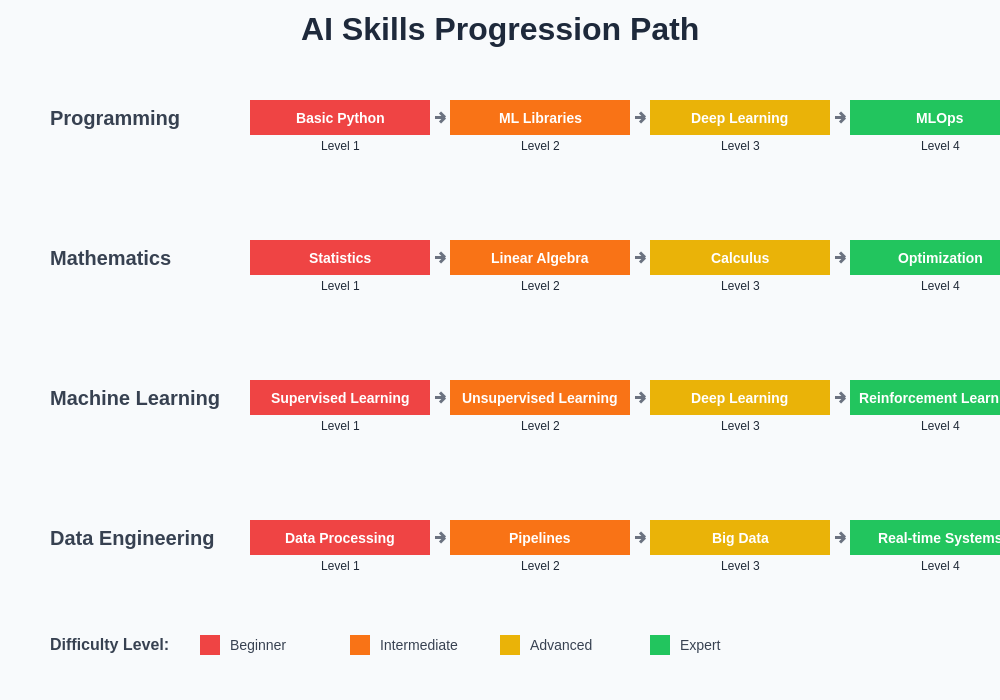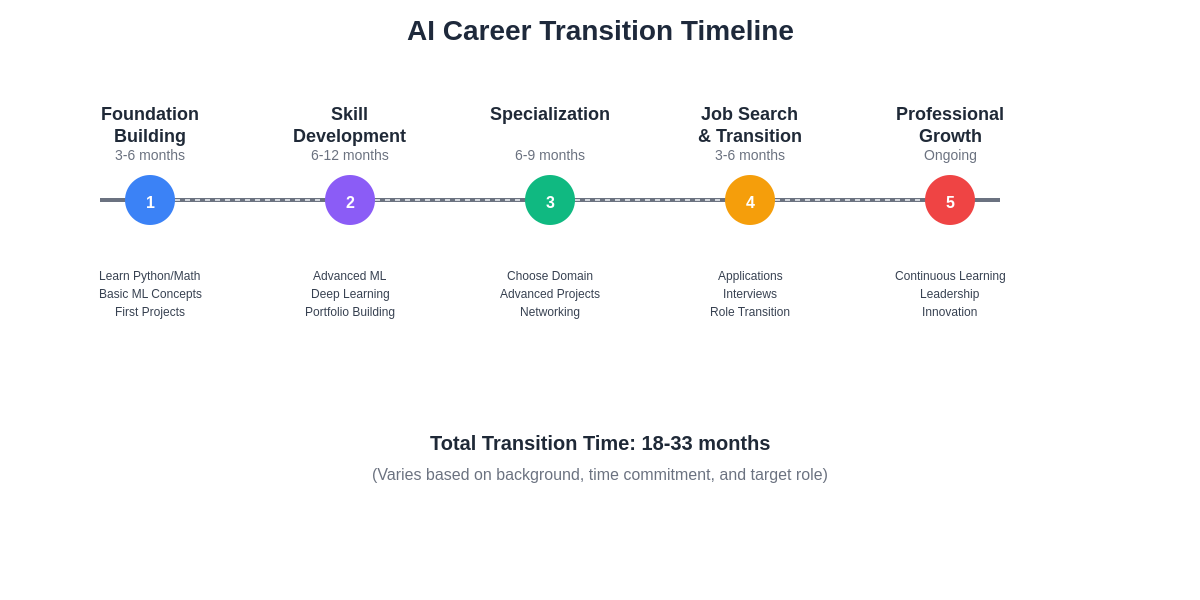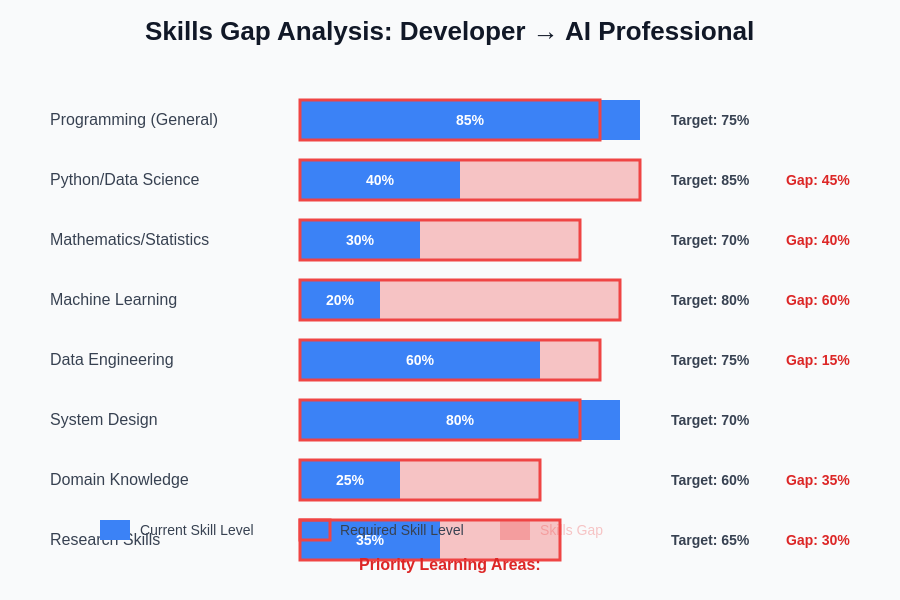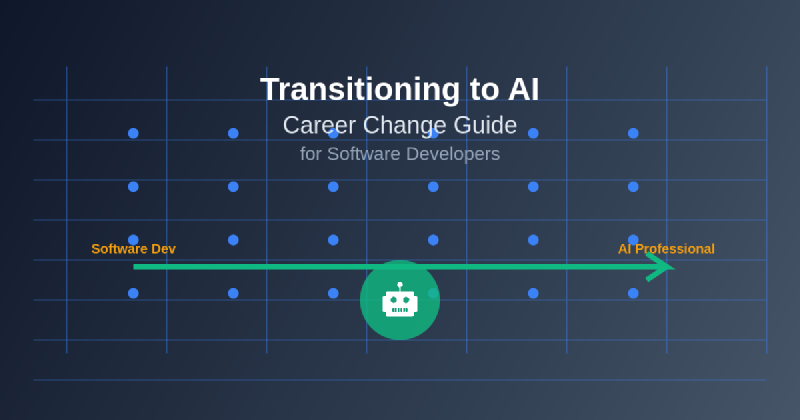The artificial intelligence revolution has created an unprecedented demand for skilled professionals who can bridge the gap between traditional software development and cutting-edge AI technologies. For experienced software developers, this presents a unique opportunity to leverage existing technical expertise while pivoting toward one of the most dynamic and rapidly growing fields in technology. The transition from conventional software development to AI-focused roles represents not just a career change, but a strategic evolution that positions professionals at the forefront of technological innovation.
Understanding the landscape of AI career opportunities requires recognizing that this field encompasses far more than just machine learning algorithms and neural networks. Modern AI careers span diverse domains including natural language processing, computer vision, robotics, autonomous systems, and intelligent automation, each offering distinct pathways for professional growth and specialization. Stay updated with the latest AI career trends to understand emerging opportunities and industry developments that could shape your transition strategy.
Understanding the AI Career Landscape
The AI career ecosystem has evolved dramatically over the past decade, transforming from a niche academic field into a mainstream industry driving innovation across virtually every sector of the economy. Software developers entering this space will find familiar elements alongside entirely new paradigms that require dedicated learning and adaptation. The fundamental shift from deterministic programming to probabilistic machine learning represents perhaps the most significant conceptual leap that traditional developers must navigate during their transition.
Modern AI roles extend far beyond the stereotypical image of data scientists working in isolation with complex mathematical models. Today’s AI professionals collaborate extensively with cross-functional teams, translate business requirements into technical solutions, and build production systems that serve millions of users. The integration of AI capabilities into existing software platforms has created hybrid roles that perfectly suit developers with strong engineering backgrounds who wish to expand into AI without abandoning their foundational skills.
The market demand for AI professionals with software development backgrounds has reached unprecedented levels, with companies actively seeking individuals who can combine algorithmic thinking with practical engineering expertise. This unique skill combination enables professionals to build scalable AI systems, optimize model performance for production environments, and bridge the often significant gap between research prototypes and commercially viable products.
Essential Skills for AI Transition
Mathematical foundations form the cornerstone of successful AI careers, though the depth required varies significantly depending on the specific role and domain. Linear algebra, calculus, statistics, and probability theory provide the theoretical framework necessary for understanding machine learning algorithms, while discrete mathematics and optimization theory become crucial for advanced applications. Software developers typically find that their existing problem-solving skills translate well to mathematical concepts, making the learning curve more manageable than initially anticipated.
Programming proficiency in AI-specific languages and frameworks represents another critical transition area. While many concepts from traditional software development remain relevant, AI programming introduces new paradigms around data manipulation, model training, and distributed computing. Python has emerged as the dominant language for AI development, supported by an extensive ecosystem of libraries including TensorFlow, PyTorch, scikit-learn, and NumPy that form the foundation of most AI projects.
Data engineering skills have become increasingly important as organizations recognize that successful AI implementations depend heavily on robust data infrastructure. Understanding data pipelines, storage systems, preprocessing techniques, and quality assurance processes enables AI professionals to work effectively with the large-scale datasets that power modern machine learning systems. This area particularly benefits software developers, as it leverages existing knowledge of system architecture and database management while extending into AI-specific requirements.
Enhance your AI learning journey with advanced tools like Claude that can provide personalized guidance, code reviews, and explanations of complex AI concepts tailored to your existing development experience. The ability to leverage AI tools for learning AI represents a meta-skill that can accelerate your transition significantly.
Learning Pathways and Educational Strategies
Structured learning approaches provide the most efficient path for software developers transitioning to AI careers, combining theoretical knowledge with practical application in ways that build upon existing technical expertise. Online education platforms have evolved to offer comprehensive AI curricula specifically designed for working professionals, enabling career transitions without requiring extended breaks from employment or formal degree programs.
University programs in AI and machine learning have proliferated rapidly, ranging from certificate programs to full master’s degrees, each serving different career objectives and time constraints. Professional master’s programs often provide the most balanced approach for working developers, combining rigorous academic foundations with industry-relevant projects and networking opportunities. However, the rapidly evolving nature of AI technology means that formal education must be supplemented with continuous learning and hands-on experimentation.
Self-directed learning through online resources, tutorials, and practice projects offers maximum flexibility for busy professionals but requires significant discipline and strategic planning. The key to successful self-directed AI learning lies in balancing theoretical understanding with practical implementation, ensuring that abstract concepts are reinforced through code and real-world applications. Open-source projects and Kaggle competitions provide excellent opportunities for applying newly acquired skills while building a portfolio that demonstrates competency to potential employers.
Bootcamps and intensive training programs have emerged as popular options for accelerated AI education, typically focusing on practical skills and job placement assistance. While these programs can provide rapid skill acquisition, they often sacrifice depth for breadth, making them most suitable for developers who already possess strong technical foundations and learn quickly in intensive environments.
Building a Strong Foundation in Machine Learning
Machine learning concepts represent the core technical knowledge required for most AI careers, encompassing supervised learning, unsupervised learning, and reinforcement learning paradigms that form the basis of modern AI applications. Software developers often find supervised learning the most intuitive starting point, as it resembles function approximation problems familiar from traditional programming, where inputs map to predictable outputs through learned patterns.
Understanding different algorithm families and their appropriate applications becomes crucial for making informed decisions in real-world AI projects. Decision trees, linear models, neural networks, ensemble methods, and clustering algorithms each excel in different scenarios, and experienced AI professionals develop intuition about which approaches work best for specific types of problems and datasets.
Feature engineering and data preprocessing skills bridge the gap between raw data and effective machine learning models, often determining the success or failure of AI projects more than algorithm selection itself. This area particularly leverages software developers’ existing skills in data manipulation and system design, as it involves building robust pipelines that can handle real-world data inconsistencies and scale to production requirements.
Model evaluation and validation techniques ensure that AI systems perform reliably in production environments rather than just training scenarios. Cross-validation, performance metrics, bias detection, and statistical significance testing form essential skills for any AI professional, enabling evidence-based decision-making about model deployment and iteration strategies.

The progression from traditional software development to AI expertise follows a structured path that builds upon existing technical foundations while introducing new domains of knowledge. This systematic approach ensures that developers can leverage their existing strengths while methodically acquiring the specialized skills necessary for AI careers.
Practical Project Development
Hands-on project development serves as the most effective method for consolidating theoretical AI knowledge into practical expertise that employers value and recognize. Starting with well-defined projects that solve real problems provides concrete learning objectives while building a portfolio that demonstrates competency across different AI domains and applications.
Beginning projects should focus on familiar problem domains where existing domain knowledge can compensate for developing AI skills, gradually progressing to more complex challenges that stretch technical capabilities. Web scraping and analysis projects, recommendation systems, and predictive analytics applications provide excellent starting points that combine traditional software development skills with machine learning techniques.
Open source contributions to established AI projects offer opportunities to learn from experienced practitioners while making meaningful contributions to the community. Popular projects like TensorFlow, scikit-learn, and Hugging Face welcome contributions from developers with strong engineering backgrounds, providing pathways to gain recognition within the AI community while developing advanced technical skills.
Personal projects that solve authentic problems demonstrate initiative and creativity that distinguish candidates in competitive job markets. These projects should showcase end-to-end development capabilities, from data collection and preprocessing through model development, evaluation, and deployment, illustrating the complete skill set required for professional AI work.
Leverage advanced AI research capabilities with Perplexity to stay current with the latest developments in AI technologies and methodologies that could enhance your project work and professional development. The ability to quickly research and understand emerging AI techniques becomes increasingly valuable as the field continues to evolve rapidly.
Navigating Career Paths in AI
The diversity of AI career paths reflects the broad applicability of artificial intelligence across industries and functional areas, creating opportunities for software developers to find niches that align with their interests and existing expertise. Machine learning engineering roles combine traditional software engineering with AI model development, making them natural transition targets for experienced developers seeking to enter the AI field.
Data science positions emphasize statistical analysis and business insight generation, appealing to developers who enjoy problem-solving and communication with stakeholders. While these roles require strong analytical skills, they also benefit significantly from software engineering expertise in areas like data pipeline development, automation, and reproducible analysis workflows.
Research and development roles in AI companies and research institutions offer opportunities to work on cutting-edge problems and contribute to the advancement of AI technology. These positions typically require deeper theoretical knowledge and research experience but provide unparalleled exposure to emerging technologies and methodologies that shape the future of the field.
Product management and technical leadership roles in AI-focused companies leverage both technical expertise and business acumen, enabling experienced developers to guide AI product development without necessarily implementing algorithms directly. These positions require understanding AI capabilities and limitations while translating between technical teams and business stakeholders.
AI consulting and freelance opportunities have proliferated as organizations across industries seek expertise in implementing AI solutions. Independent consulting can provide excellent experience working with diverse clients and problems while building a reputation and network within the AI community.
Industry-Specific Applications
Healthcare AI represents one of the most rapidly growing and impactful application areas, combining technical challenges with meaningful social impact through improved patient outcomes and healthcare efficiency. Medical imaging, drug discovery, electronic health record analysis, and clinical decision support systems offer diverse opportunities for AI professionals with interests in healthcare innovation.
Financial services have embraced AI extensively for fraud detection, algorithmic trading, risk assessment, and customer service automation. The combination of high-stakes decision-making, regulatory compliance requirements, and vast datasets creates complex technical challenges that benefit from strong software engineering foundations alongside AI expertise.
Autonomous systems and robotics applications span industries from manufacturing to transportation, requiring AI professionals who understand both machine learning algorithms and real-world system constraints. The integration of AI with physical systems creates unique challenges around safety, reliability, and real-time performance that distinguish these roles from purely software-based AI applications.
Natural language processing applications have exploded in popularity with the success of large language models, creating opportunities in areas like chatbots, document analysis, translation services, and content generation. These applications often require strong software engineering skills for building scalable systems that can handle high-volume text processing requirements.

The timeline for successfully transitioning from software development to AI careers varies significantly based on individual circumstances, learning approaches, and target roles. Understanding realistic expectations for skill development and job market entry helps professionals plan effective transition strategies that balance learning with career stability.
Building Professional Networks
Professional networking within the AI community provides access to job opportunities, learning resources, and industry insights that significantly accelerate career transitions. Academic conferences like NeurIPS, ICML, and domain-specific venues offer opportunities to learn about cutting-edge research while meeting practitioners and researchers working on similar problems.
Industry meetups and professional organizations create more accessible networking opportunities for professionals transitioning into AI careers. Groups like local machine learning meetups, AI professional associations, and online communities provide platforms for sharing experiences, learning from peers, and discovering job opportunities that may not be publicly advertised.
Online presence through technical blogs, social media engagement, and open source contributions helps establish professional credibility within the AI community. Sharing learning experiences, project results, and insights about AI development creates visibility that can lead to collaboration opportunities and job offers from organizations seeking passionate AI practitioners.
Mentorship relationships with experienced AI professionals provide personalized guidance and support during career transitions. Many senior practitioners are willing to share knowledge and advice with motivated individuals making serious commitments to entering the field, particularly those who demonstrate initiative through project work and continuous learning.
Overcoming Transition Challenges
Imposter syndrome frequently affects software developers transitioning to AI careers, as the field’s rapid evolution and mathematical foundations can create feelings of inadequacy despite strong existing technical skills. Recognizing that most AI practitioners continue learning throughout their careers helps normalize the experience of feeling overwhelmed by the breadth of knowledge required for AI expertise.
Managing learning while maintaining current employment requires careful planning and time management strategies that balance skill development with professional responsibilities. Setting realistic learning goals, utilizing commute time and weekends effectively, and focusing on high-impact skills helps maximize progress while maintaining work performance and personal well-being.
Financial considerations during career transitions can create stress and pressure that interfere with effective learning and job searching. Building financial reserves before beginning serious transition efforts, considering part-time or consulting opportunities for gradual transitions, and researching salary expectations for target roles helps create realistic transition plans.
Technical skill gaps between traditional software development and AI requirements can seem daunting initially but become manageable through systematic learning approaches. Identifying specific skill deficiencies, creating structured learning plans, and celebrating incremental progress helps maintain motivation throughout extended learning periods required for career transitions.

Understanding the specific skills gaps between current capabilities and AI career requirements enables targeted learning efforts that maximize return on time investment. This analysis helps prioritize learning objectives and track progress toward career transition goals.
Salary Expectations and Negotiation
AI career compensation varies dramatically based on role, industry, location, and experience level, but generally commands premium salaries compared to traditional software development positions. Entry-level AI roles for experienced developers typically offer competitive compensation that reflects the high demand for technical talent with AI skills, while senior positions can reach exceptional salary levels in competitive markets.
Geographic location significantly impacts AI salary expectations, with major technology hubs like San Francisco, New York, and Seattle offering highest compensation alongside highest living costs. Remote work opportunities have expanded access to high-paying AI positions while enabling professionals to optimize their cost of living and quality of life considerations.
Industry sector influences both salary levels and career growth opportunities, with technology companies, financial services, and healthcare organizations typically offering premium compensation for AI talent. Government and non-profit sectors may offer lower direct compensation but provide other benefits like job security, meaningful work, and excellent learning opportunities.
Negotiation strategies for AI positions should emphasize unique value propositions that combine software engineering expertise with emerging AI skills. Highlighting abilities to build production AI systems, bridge technical and business requirements, and contribute immediately to engineering productivity can justify premium compensation requests.
Long-term Career Development
Continuous learning represents perhaps the most critical success factor for long-term AI careers, as the field’s rapid evolution requires professionals to constantly update their knowledge and skills. Developing personal learning systems that balance theoretical knowledge with practical application ensures continued relevance and career growth in this dynamic field.
Specialization versus generalization strategies depend on individual career objectives and market opportunities, with deep expertise in specific AI domains offering path to technical leadership roles while broader AI knowledge enables management and consulting opportunities. Most successful AI professionals develop T-shaped skill profiles that combine deep expertise in one area with working knowledge across multiple AI domains.
Leadership development becomes increasingly important as AI careers progress beyond individual contributor roles toward technical leadership, product management, and executive positions. The combination of AI expertise with strong communication, project management, and strategic thinking skills creates opportunities to guide organizational AI initiatives and influence industry direction.
Entrepreneurial opportunities in AI continue expanding as the technology matures and becomes more accessible to independent developers and small teams. Building AI products, consulting services, or educational resources leverages career transition experiences while creating potential for significant financial returns and professional recognition.
The future trajectory of AI careers will likely emphasize human-AI collaboration skills, ethical AI development, and the ability to build AI systems that augment rather than replace human capabilities. Professionals who develop expertise in these emerging areas will be well-positioned for leadership roles in the next phase of AI development and deployment.
The transition from traditional software development to AI careers represents both a significant challenge and an extraordinary opportunity for technical professionals seeking to position themselves at the forefront of technological innovation. Success in this transition requires dedication to continuous learning, systematic skill development, and strategic career planning that leverages existing strengths while building new capabilities in this rapidly evolving field.
Disclaimer
This article provides general guidance for career transition and should not be considered personalized career advice. Individual circumstances, market conditions, and industry requirements vary significantly, and readers should conduct thorough research and consider consulting with career professionals before making major career decisions. The AI field evolves rapidly, and information about specific technologies, career paths, and market conditions may change over time.
